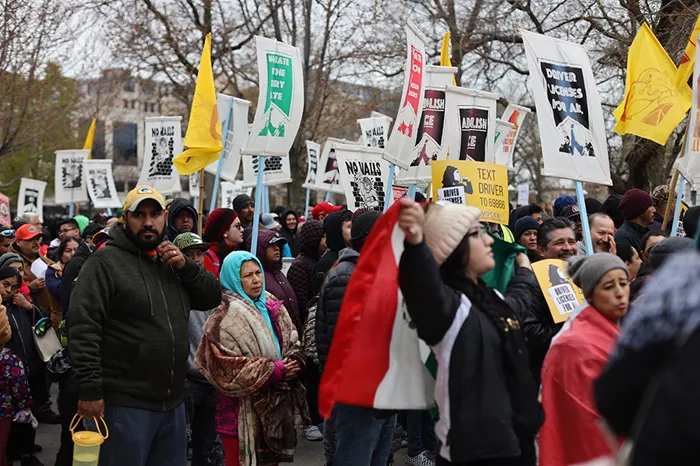HAVANA (Reuters) – Cuba’s deputy foreign minister Carlos Fernandez de Cossio criticized a proposal by U.S. President-elect Donald Trump for mass deportation of illegal immigrants in the United States, which could include Cubans. De Cossio described the idea as both unrealistic and unfair.
Trump has promised to intensify immigration enforcement, with his running mate JD Vance suggesting that as many as one million immigrants could be deported annually.
De Cossio’s remarks came after migration talks between U.S. and Cuban officials in Havana. He stressed that any mass deportation plan must align with existing U.S.-Cuba migration agreements.
“In this context, it’s unrealistic to think mass deportations from the U.S. to Cuba could happen,” he said, adding that Cuba had only accepted limited deportations from the U.S. under the Biden administration.
Under current agreements, Cuba has accepted a small number of deportations, mainly by air and sea. Trump’s incoming border chief, Tom Homan, has indicated that deportations would focus on criminals and individuals with final deportation orders, but has not specified whether exemptions for certain groups, like Cubans, would apply.
De Cossio noted that the issue of mass deportations was not discussed in the recent migration talks between U.S. and Cuban officials.
Brian Nichols, the U.S. diplomat responsible for Latin America, stated on X (formerly Twitter) that the U.S. delegation discussed the success of curbing irregular Cuban migration. He also pointed to the longstanding U.S.-Cuba Migration Accords, which date back to 1984.
It remains unclear whether Trump will adhere to the current migration agreements or attempt to renegotiate them, as he has with other international accords.
For years, Cuba has blamed the U.S. trade embargo, a relic of the Cold War, for damaging its economy and fueling the migration of Cubans to the U.S. However, de Cossio argued that mass deportations would be disruptive and unjust.
“Deporting tens of thousands or even hundreds of thousands of Cubans would uproot people who have built their lives in the United States,” he said.
Trump’s efforts to ramp up deportations during his first term (2017-2021) were met with challenges. In fact, data from the U.S. government shows that under President Biden, more immigrants were deported in fiscal year 2023 than during any year of Trump’s presidency.
Immigrant advocacy groups warn that a large-scale deportation plan would be costly, divisive, and inhumane, causing family separations and damaging communities.
Related topics:
- Keir Starmer: Tories’ ‘Open Borders Experiment’ Exposed by Record Migration Figures
- Michigan Immigrant Rights Groups Brace for Trump’s Mass Deportation Plans
- Tate: Democrats Overlook Key Lessons on Illegal Immigration


